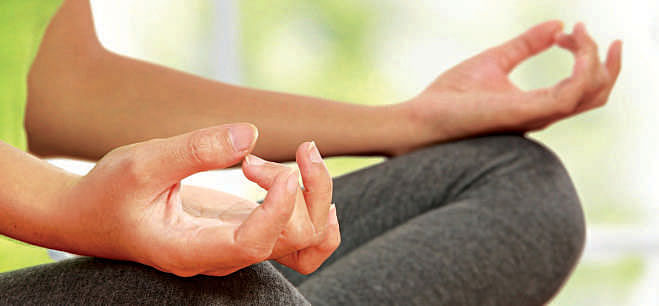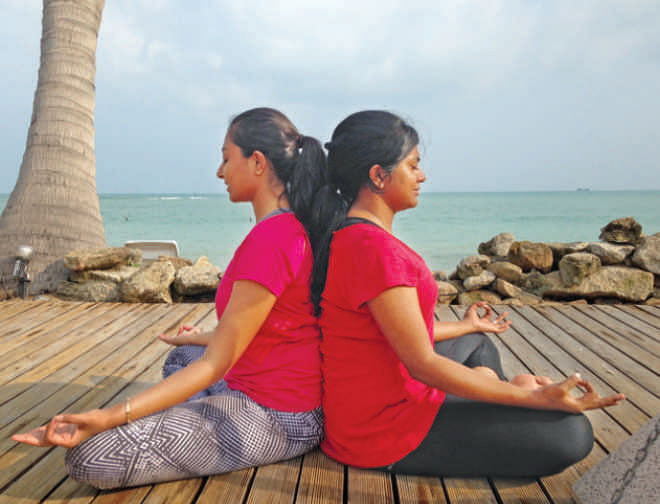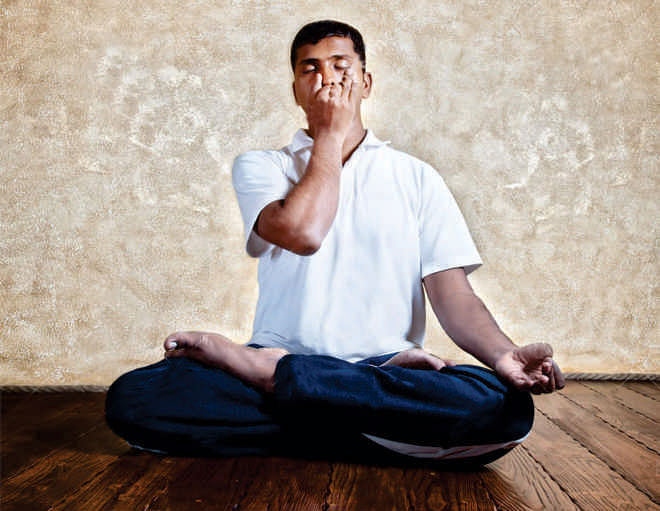Pranayama for health and vitality

When the Breath wanders, the mind is unsteady, but when the Breath is still, so is the mind still
- Hatha Yoga Pradipika
RANA is life force. It is the energy within us that makes us alive. In Sufism, it is referred to as the Force, in Chinese and Japanese philosophy, as Chi and Ki. This force determines our vitality and ability to engage with the world. Prana has many sources, such as breath, sun, food and water.
Pranayama is the expansion of life force through breathing exercises. It helps bring health and harmony to all aspects of our physiology, including our physical body. Pranayama cleanses, tones and purifies the network of energy pathways running through our body known as the nadis.
Pranayama also works on other levels, besides the body – such as the psychological, emotional, mental and spiritual levels. It deeply affects the health of the nervous system, left and right hemispheres of the brain, and steadiness of thought. It is a good way to prepare for meditation.

Pranayama is sometimes referred to as yogic breathing and it is often said to be the most important aspect of yoga practice. We are born with a fixed number of breaths in our lifetime, and this is something we cannot change, however, we can change the quality and length of that fixed number of breaths. So for instance, if you have only 1000 breaths left to live, would you rather breathe them fast and furiously, without much awareness, or would you like each breath to be full and long and slow, with complete mindfulness? Regular practice of pranayama increases ones longevity.
One breathing technique known as ujjayi breathing is particularly helpful in creating mindfulness. Ujjayi breathing is done through the nose, which naturally cleans the air coming in. By softly constricting the back of the throat, ujjayi breath slows down the flow of air coming into the body, helping us gain control of the speed of the breath more easily. Slowing the breath down creates heat and brings moisture into the lungs keeping them healthy. The sound produced is often likened to ocean waves or Darth Vadar's breath. The rhythmic, audible sound allows us to gauge the speed and rhythm of the breath and helps draw our attention inwards. If you are unable to find the sound immediately, you may pretend you are fogging a mirror in your hand. Now try to make the same sound on the inhale. And then try with your mouth closed.
To practice ujjayi pranayama, sit comfortably, with your spine lengthened and your seat bones grounded. If your spine is not aligned, your breath will not flow correctly. Maintain a balanced effort in your seated posture to keep the spine lengthened without collapsing or overstraining. It may be difficult at first. Over time it will become effortless.
Once your spine is aligned, make sure your shoulders are heavy, sliding down your back, extending evenly through the sides of your waist and ribs and sides of your neck. Bring your awareness to your heart and allow your attention to settle on your natural breath for a moment. If you notice a need to control your breath, gently let go of that need and let the breath breathe itself.
Once you are comfortable, begin applying ujjayi breath in a square formula – inhale for four counts, hold for four counts, exhale for four counts, hold for four counts. Close your eyes and enjoy the rhythm of the exercise. Holding the breath on the exhale deepens the effect of emptying the mind. Holding the breath on the inhale improves the nervous system. Retention on exhale is likened to emptying yourself of all the stress or baggage you are carrying, releasing your ego. Retention on inhale is likened to inflating yourself with joy and lightness of being.

You may also like to add a mantra in your mind, as you perform your ujjayi square breath – something like: 'inhale love, exhale fear/ inhale joy, exhale stress'. This can help you relax and feel good.
Perhaps you have noticed that different emotional states cause different patterns of breathing. When you are angry, you breathe fast, when you are blissful, you breathe long breaths of contentment with soft sighs.
Breath and emotion are intricately intertwined. While it is not always possible to control our emotions, with practice we can learn to regulate our breath. This in turn becomes a helpful way of regulating emotions. For example, if you are feeling angry and reactive, 10 slow ujjayi breaths can help you restore a sense of balance to your thoughts, enabling you to react more appropriately, less impulsively.
Ujjayi breath means victory breath or breath of Fire. Go ahead, awaken the energy within you and be victorious over your mind. Using ujjayi breath, you can control your mind, rather than letting your mind control you. This is true freedom.
To learn more about pranayama and ujjayi breath, you are invited to join my yoga class. A new beginners' session is starting on October 25th. For more information, please email: [email protected]

 For all latest news, follow The Daily Star's Google News channel.
For all latest news, follow The Daily Star's Google News channel. 



Comments